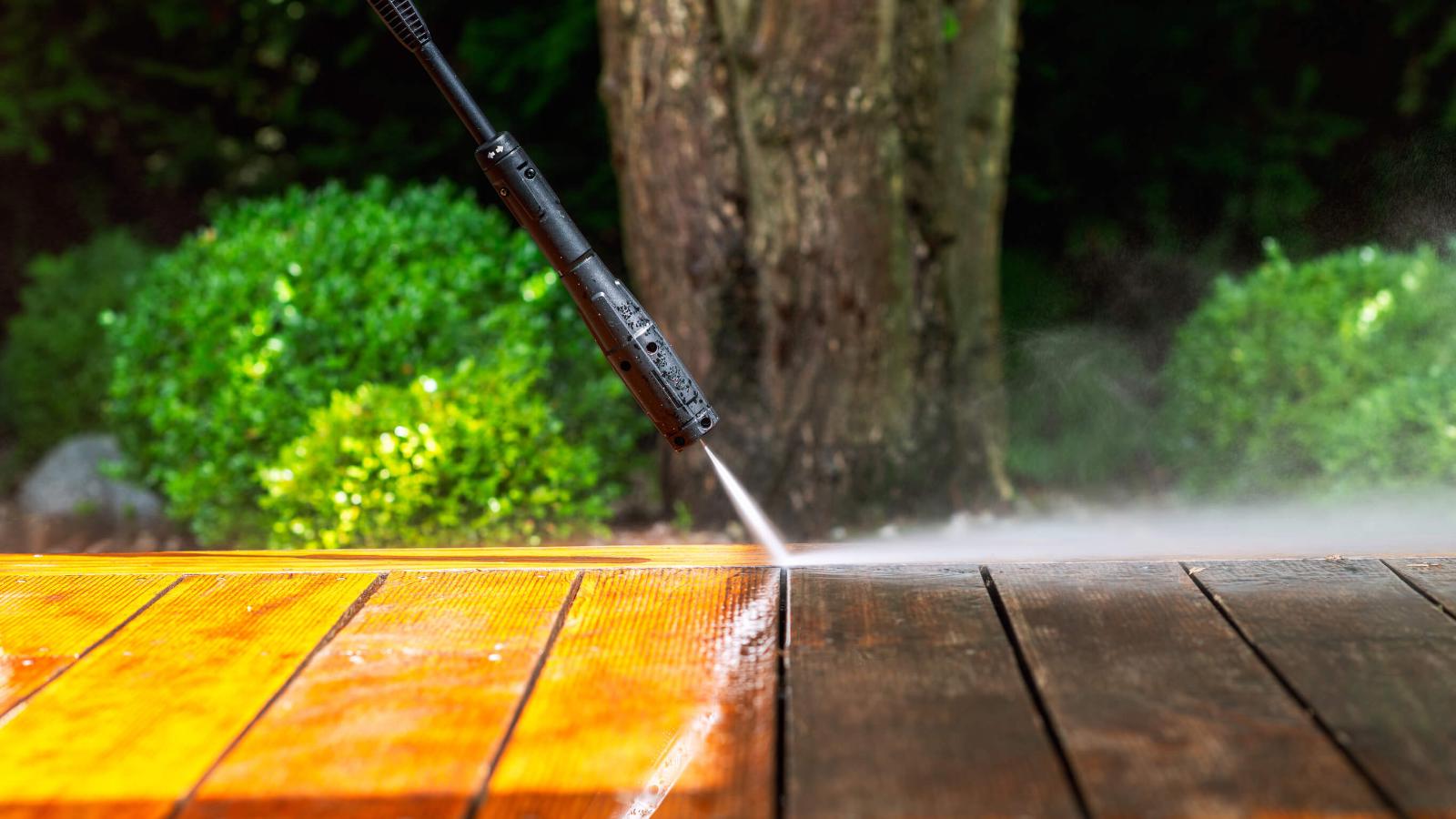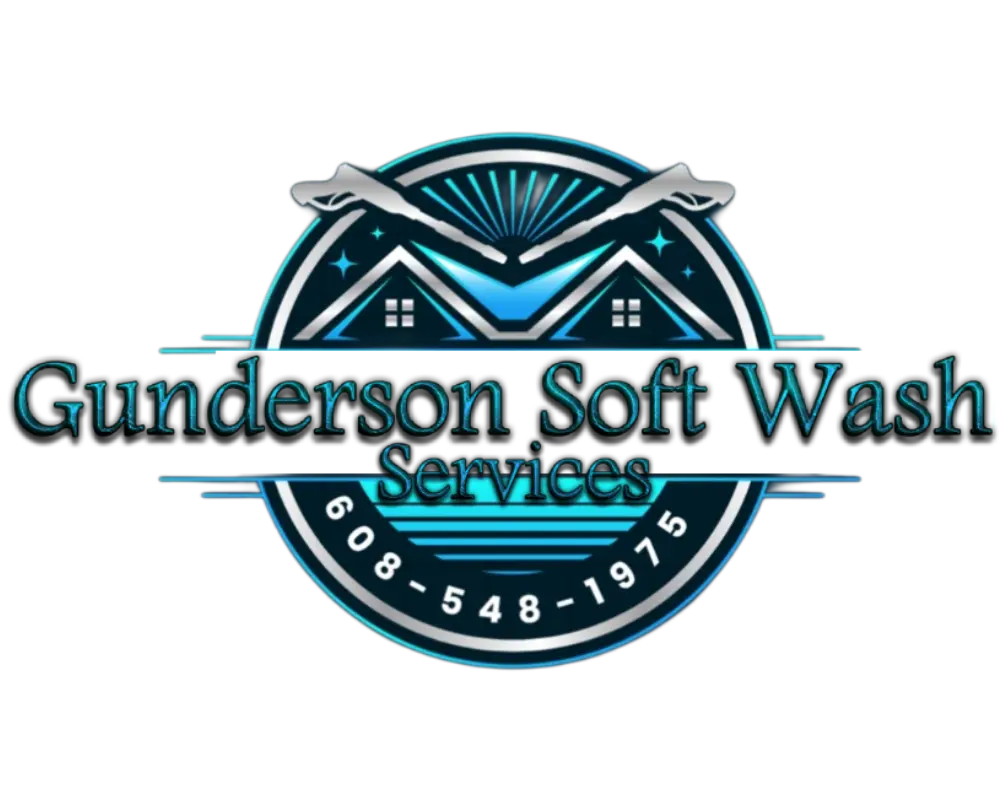Deck Cleaning
Maintaining a clean deck goes beyond aesthetics; it significantly extends the lifespan of your outdoor living space and ensures a safer environment for your family and guests. Regular cleaning removes harmful mold, mildew, algae, and dirt that can cause wood rot, make surfaces dangerously slippery, and degrade sealants and stains over time.
Soft Washing
When it comes to cleaning, the ideal method depends largely on your deck's material and condition. For most wooden decks, especially those with a stain or sealant, or composite decks, soft washing is generally the preferred method. Its low-pressure application combined with specialized cleaning solutions effectively eliminates organic growth and grime without the risk of splintering wood, stripping finishes, or damaging composite materials that high-pressure washing can cause.

Pressure Washing
For untreated wooden decks that need significant stripping before re-staining, a carefully controlled pressure wash might be necessary to remove deep-set dirt or old finishes. Our experts will always carefully examine your deck to determine which method is ideal for every single inch of the job.
Questions Answered
Cleaning your deck is essential for both aesthetics and preservation. Over time, decks accumulate dirt, grime, mold, mildew, algae, and pollen, making them look dull and uninviting. Regular cleaning restores your deck's beauty and enhances your outdoor living space.
Yes, significantly. Organic growths like mold, mildew, and algae create a slick, hazardous film on deck surfaces, especially when wet. Cleaning removes this slippery layer, making your deck much safer for walking and recreational activities.
For most decks, particularly those made of wood (especially cedar, redwood, or older treated pine), painted surfaces, or composite materials, soft washing is generally the preferred and safest method. Soft washing uses low pressure combined with specialized cleaning solutions to gently dissolve and rinse away dirt and organic growth. While pressure washing can remove tough grime, it carries a high risk of damaging deck surfaces by splintering wood, forcing water into cracks, stripping finishes, or etching composite materials.
Wood is porous and susceptible to mold, mildew, algae, and UV damage (which causes graying). Harsh chemicals can dry out, splinter, or discolor the wood.
While more resistant to rot, insects, and some stains than wood, composite decks can still accumulate dirt, mold, mildew, and grease. They can be susceptible to scratching and damage from abrasive cleaners or high-pressure washing.
Absolutely. Mold, mildew, and algae thrive in moist conditions and can trap moisture against the deck surface. This accelerates wood decay, softening the wood fibers and leading to rot. Regular cleaning removes these harmful organisms, preventing premature deterioration and extending the structural integrity of your deck.
A dirty deck's lifespan is indeed shortened. The continuous presence of moisture-retaining biological growth and abrasive dirt grinds away at the deck material, prematurely degrading sealants, stains, and even the wood or composite itself. Regular cleaning is a key component of long-term deck maintenance.
Yes, improper pressure washing can cause significant damage. High pressure can:
Wood: Splinter wood fibers, create unsightly "wand marks," erode the surface, and force water deep into the wood, promoting mold growth and rot.
Composite: Etch or scratch the surface, void warranties, and damage the material's integrity.
Older/Weakened Decks: Accelerate the breakdown of already compromised materials.
For these reasons, you should always hire professional
DIY cleaning is possible, but it requires the right tools, cleaning solutions, and techniques to avoid damage. Professionals have the expertise and equipment to ensure a deep clean without harming your deck.
